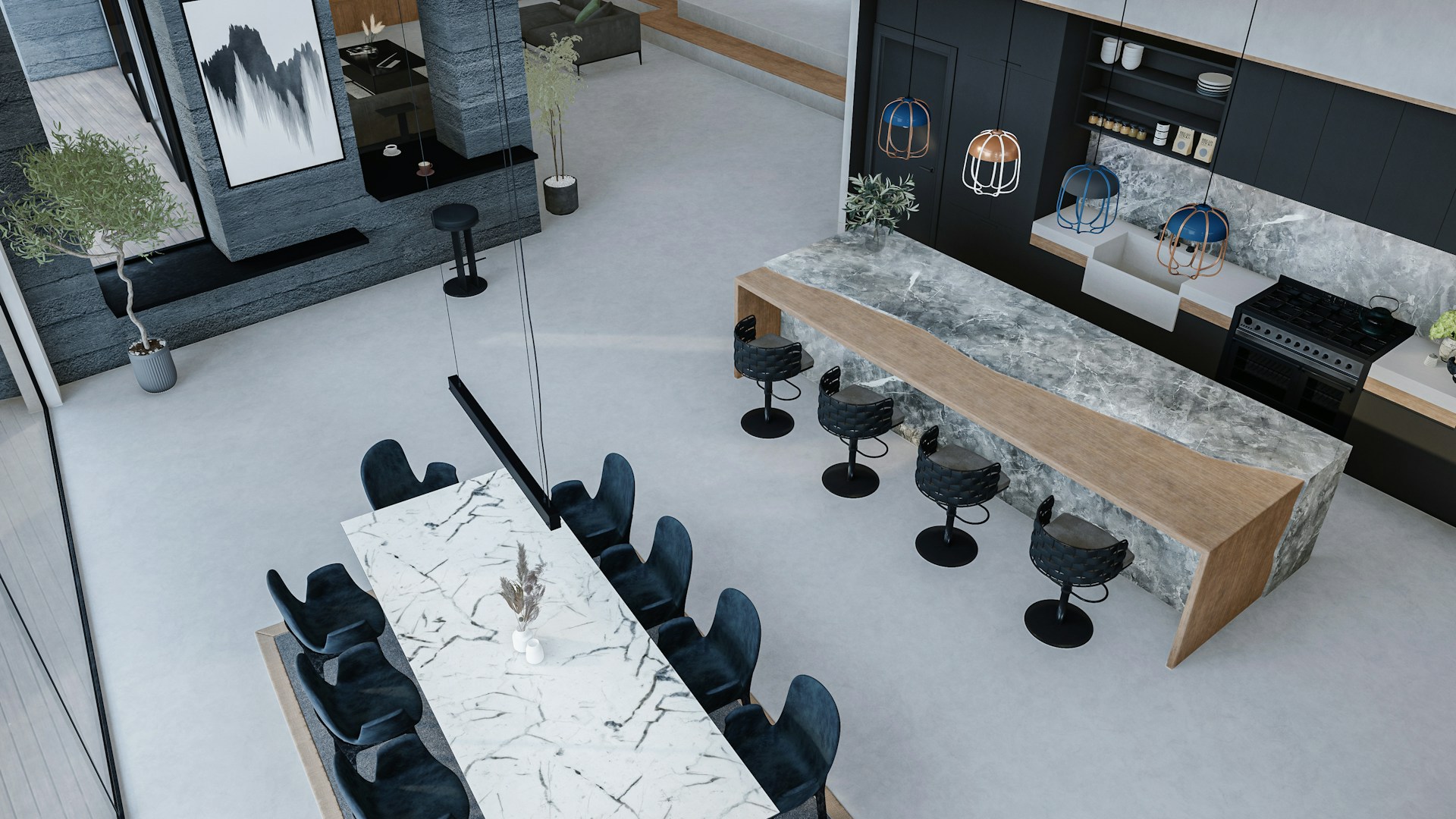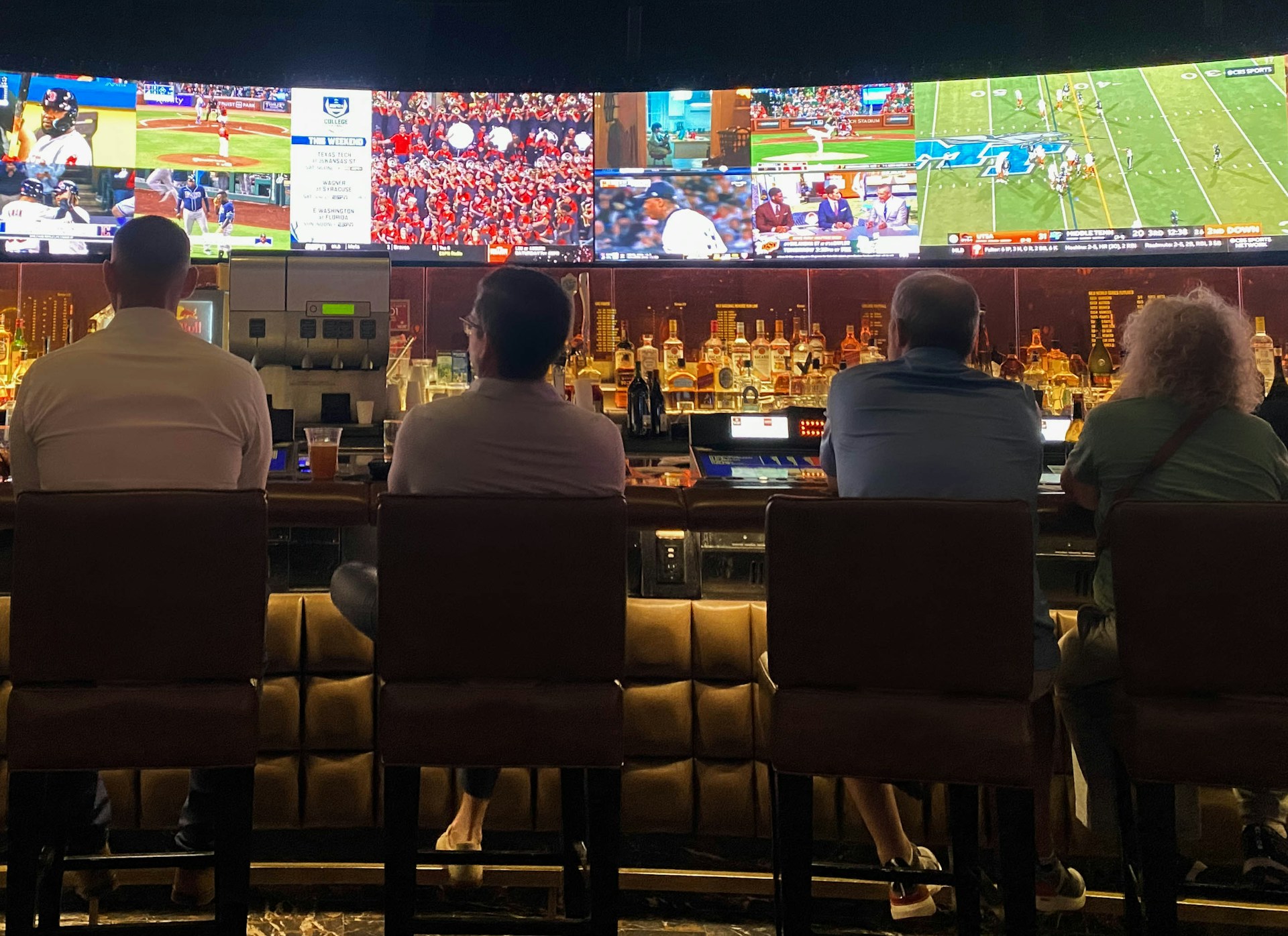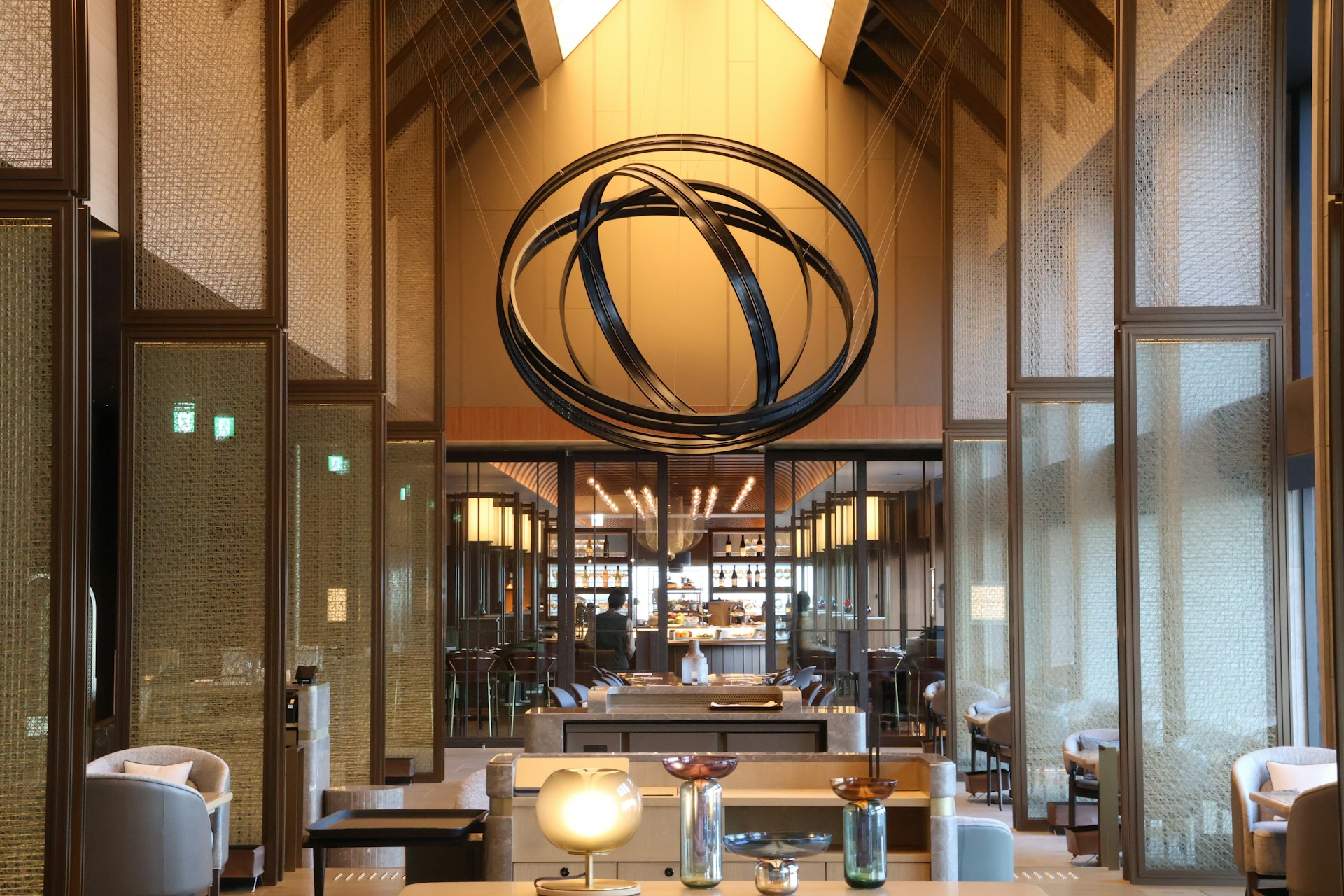Commercial remodels in Dallas typically require 12 business days for plan reviews, while new commercial construction demands 20 or more business days for comprehensive evaluation. Restaurant construction management bridges that gap between architectural vision and operational reality.
We coordinate the complete restaurant construction lifecycle in Dallas, managing projects from feasibility studies through final turnover. Our work encompasses new builds, tenant improvements, comprehensive remodels, brand refreshes, and QSR renovations across the Dallas-Fort Worth region.
Which Phases And Services Are Included From Preplanning To Closeout?
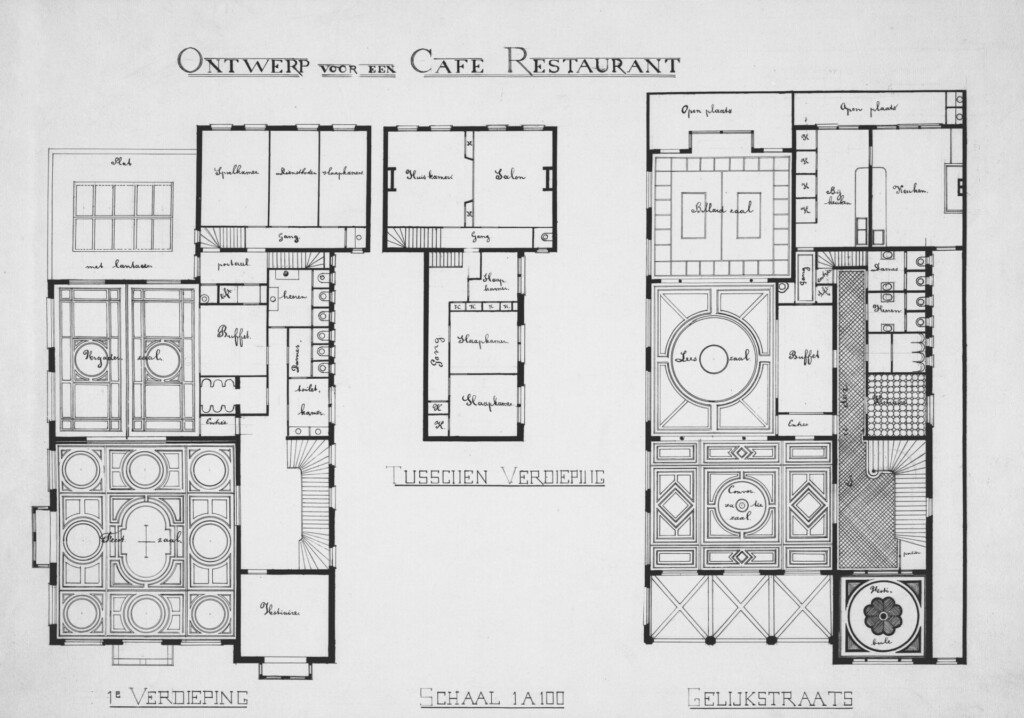
Restaurant construction demands a structured approach that covers every detail from initial concept to final handoff. We break the process into clear phases that build on each other, ensuring nothing falls through the cracks during the build.
Early Phase Planning And Development
Feasibility studies and budgeting form the foundation of any successful restaurant project. We assess site conditions, zoning requirements, and construction feasibility to establish realistic project parameters. Design and planning follows, where we translate concepts into buildable plans that meet operational needs and brand standards.
Permitting and code compliance work runs parallel to design development. We coordinate with Dallas building departments to secure required approvals and ensure all plans meet local ordinances. This upfront coordination prevents costly delays once construction begins.
Preconstruction Services And Preparation
Preconstruction services include detailed cost estimating, schedule development, and value engineering reviews. We analyze construction methods and materials to optimize both cost and timeline while maintaining quality standards. Procurement and expediting start during this phase to secure long-lead items and coordinate delivery schedules.
Bid management and leveling ensure we get competitive pricing from qualified subcontractors. We evaluate proposals beyond just cost, considering experience with restaurant work, scheduling capabilities, and quality standards. This process establishes the project team before construction starts.
Construction And Build-Out Execution
Construction and build-out represent the physical transformation of space into a functioning restaurant. We coordinate demolition, structural work, mechanical systems, and utility rough-ins according to the established schedule. Safety planning and quality control run throughout this phase to maintain jobsite standards and catch issues early.
Interior finishes and branding alignment bring the design vision to life. We manage flooring installation, wall finishes, lighting, and millwork while ensuring brand elements integrate seamlessly. Equipment installation and kitchen optimization require precise coordination between trades to achieve proper functionality and code compliance.
Accounting and cost tracking provide ongoing visibility into project finances. We monitor expenditures against budget, process change orders, and maintain detailed records for final billing. Schedule development continues as we adjust timelines based on actual progress and any unforeseen conditions.
Project Closeout And Turnover
Project closeout and turnover mark the transition from construction to operations. We complete final inspections, resolve punch list items, and secure certificates of occupancy. All warranties, operation manuals, and as-built drawings get compiled for owner handoff.
EB3 Construction teams coordinate these phases across standalone sites, build-outs, and multi-site rollouts. Whether managing a single location or coordinating multiple restaurants simultaneously, we maintain comprehensive oversight to keep projects on schedule and within budget.
How Do Preconstruction Planning And Management Improve Cost And Schedule?
Preconstruction planning transforms unpredictability into controlled outcomes. We use feasibility studies to validate project scope against realistic budgets before committing resources. These studies reveal potential cost drivers early, allowing stakeholders to make informed decisions about design modifications or budget adjustments.
Accurate estimates form the foundation of successful cost management. Our teams analyze material costs, labor requirements, and equipment needs to establish baseline budgets that account for market conditions. Early cost analysis prevents the budget surprises that derail restaurant openings.
Schedule analysis and forecasting identify potential bottlenecks before they impact timelines. We map critical path activities like permitting reviews, equipment delivery, and inspection schedules. This forecasting reveals which tasks could delay opening dates, enabling proactive coordination with vendors and inspectors.
Contract risk analysis protects owners from terms that create cost overruns or schedule delays. We review contractor agreements, change order procedures, and payment terms to identify clauses that could impact project outcomes. Understanding these contractual obligations helps owners negotiate better terms and budget for potential risks.
Stakeholder management keeps all parties aligned throughout the preconstruction phase. Regular coordination meetings with designers, permitting authorities, equipment suppliers, and construction teams prevent miscommunication that leads to rework. Clear communication channels reduce the coordination delays that extend project timelines.
Program review and capital planning coordinate multiple restaurant projects within larger development programs. We align individual project schedules with overall CapEx priorities, ensuring resources and contractor availability support planned opening dates. This coordination becomes critical for multi-site rollouts where timing affects brand strategy and market penetration.
These practices deliver measurable benefits. Early risk identification reduces change orders during construction. Accurate scheduling prevents costly delays that impact lease obligations and revenue projections. Budget control maintains financial performance throughout the project lifecycle. The result is predictable outcomes that support business objectives rather than creating operational challenges.
What Dallas-Specific Considerations Affect Restaurant Builds And Remodels?
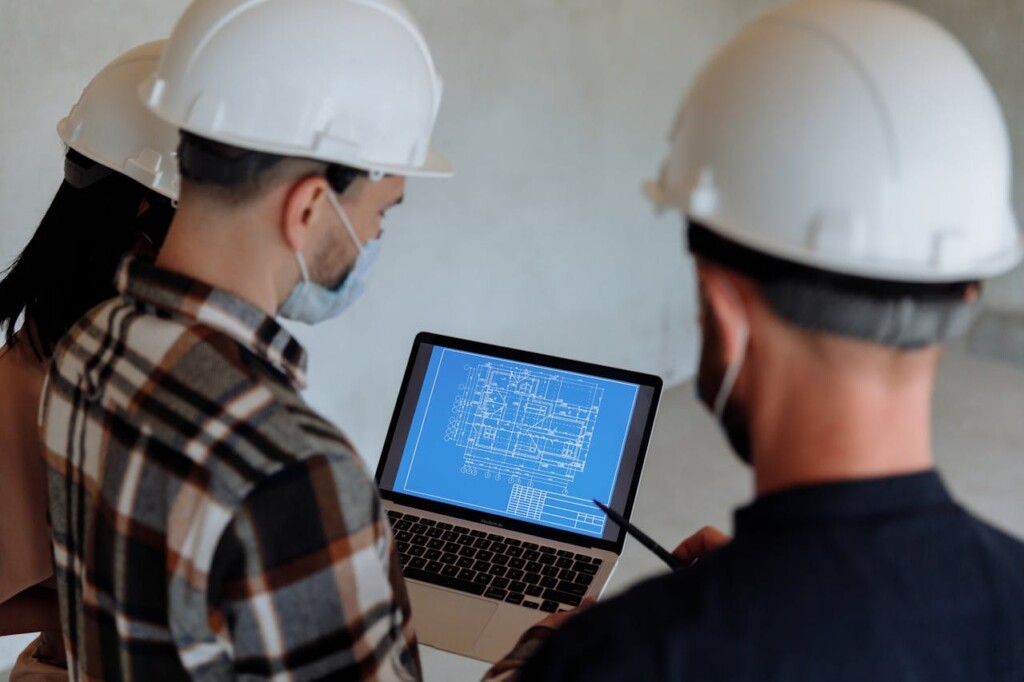
Dallas permitting creates unique checkpoints that differ from surrounding municipalities. We navigate City of Dallas Chapter 17 Food and Drug Code requirements alongside building inspection processes that demand online submission for all commercial applications since May 2024. The Consumer Health Division at Oak Cliff Municipal Center handles food establishment permits before any construction begins, while the Sustainable Development & Construction office manages building plan reviews with timeframes extending 20 business days for new commercial projects.
Local ordinances shape every aspect of restaurant development. The city requires self-closing exterior doors for pest control, specific lighting standards of 50 foot-candles in food preparation areas, and grease trap installations that comply with municipal waste discharge regulations. We coordinate these Dallas-specific requirements during design phases to prevent costly revisions during plan review cycles.
Site Development And Entitlement Coordination
Site development timelines depend on proactive coordination with Dallas zoning departments and utility providers. Entitlement processes for restaurant sites often involve traffic impact studies for drive-thru configurations and parking compliance reviews that can extend approval schedules. We work directly with city planners to identify potential delays early, particularly for sites requiring zoning variances or special use permits that trigger additional review requirements.
Infrastructure readiness varies significantly across Dallas neighborhoods. Areas like Deep Ellum and Bishop Arts District may require utility upgrades or historic district approvals that add complexity to development schedules. We assess utility capacity, gas line access, and electrical infrastructure during site evaluation to prevent mid-construction surprises that delay openings.
Drive-Thru Planning And ADA Compliance
Drive-thru planning in Dallas requires careful attention to traffic flow patterns and city-specific circulation standards. We design drive-thru lanes that meet minimum width requirements while ensuring adequate stacking space that prevents spillover onto public streets. Dallas traffic engineering departments review these plans for compliance with sight line requirements and turning radius specifications that vary by street classification.
ADA compliance extends beyond standard accessibility requirements to include Dallas-specific interpretations of federal guidelines. We ensure proper slope gradients for parking areas, compliant pathway widths for outdoor seating areas, and appropriate door hardware throughout restaurant spaces. Hand wash sink placement within 25 unobstructed linear feet of food handling areas requires careful coordination with ADA pathway requirements to maintain code compliance.
Multi-Site Programs And Corporate Standards
Multi-site programs benefit from standardized approaches that account for Dallas permitting variations across different districts. We develop master specifications that adapt to local requirements while maintaining brand consistency across locations. Corporate concepts require modification to meet Chapter 17 requirements for food contact surfaces, ventilation systems, and equipment specifications that may differ from other markets.
Tenant improvements within existing Dallas buildings often involve coordination with property management companies and existing building systems. We assess HVAC capacity, electrical panel availability, and grease trap access to determine modification requirements before construction begins. This upfront analysis prevents delays during build-out phases when existing infrastructure cannot support new restaurant operations.
Digital upgrades and equipment modernization projects require permits when they involve structural modifications or electrical system changes. We coordinate these improvements with ongoing operations to minimize business disruption while ensuring compliance with current Dallas building codes and health department standards.
Which Front-Of-House And Back-Of-House Details Matter Most In Restaurants?
Success in restaurant construction depends on balancing operational functionality with exceptional guest experience. We coordinate front-of-house and back-of-house systems to ensure every element works together seamlessly. The goal is creating spaces that deliver efficient service while maintaining the atmosphere guests expect.
Back-Of-House Systems Drive Operational Excellence
Kitchen layout forms the backbone of restaurant operations. We design traffic flow patterns that prevent bottlenecks during peak service hours. Equipment placement follows workflow principles, positioning prep stations, cooking equipment, and plating areas to minimize staff movement and maximize efficiency.
Equipment installation requires precise coordination with mechanical, electrical, and plumbing systems. We ensure proper clearances for maintenance access and safety compliance. Kitchen ventilation, grease management, and fire suppression systems integrate with equipment placement to meet health department requirements.
Storage areas support inventory management and food safety protocols. We position dry storage, walk-in coolers, and freezer units to minimize cross-contamination risks. Receiving areas connect to storage spaces through clear pathways that accommodate delivery schedules and inventory rotation.
Front-Of-House Elements Create Guest Experience
Interior finishes establish the visual identity guests remember. We coordinate flooring, drywall, and painting to reflect brand standards while meeting durability requirements. Dining room finishes must withstand heavy traffic while maintaining appearance through regular cleaning cycles.
Branding alignment extends beyond logos and colors. We integrate brand elements into architectural details, lighting design, and furniture selection. Every surface and fixture supports the concept, from entry doors to restroom finishes.
Lighting systems affect both ambiance and operations. We balance dining room atmosphere with task lighting for service stations. Emergency lighting and exit signs integrate with design elements while meeting safety codes.
Exterior Features Support Operations
Outdoor seating areas require weather-resistant finishes and proper drainage. We coordinate patio construction with utility connections for lighting, heating, and service needs. Outdoor dining spaces integrate with interior traffic flow to streamline service delivery.
Drive-thru design impacts both customer experience and operational efficiency. We position menu boards, order windows, and pickup stations to minimize wait times. Canopy structures protect customers and equipment while accommodating service vehicle clearances.
Parking lot design and outdoor lighting support safety and accessibility. We ensure proper illumination for security while managing light pollution concerns. Landscape elements enhance curb appeal without creating maintenance burdens.
Quality Control Prevents Costly Rework
We implement quality checkpoints throughout construction to catch issues before they impact opening schedules. Equipment set-in processes include testing and commissioning to verify performance meets specifications. Finish work receives detailed inspection to ensure durability and appearance standards.
Project turnover requires comprehensive documentation and training coordination. We deliver operation manuals, warranty information, and maintenance schedules organized for ongoing facility management. Final walkthrough processes confirm all systems function properly before staff training begins.
Conclusion and Next Steps For Dallas Restaurant Construction Management
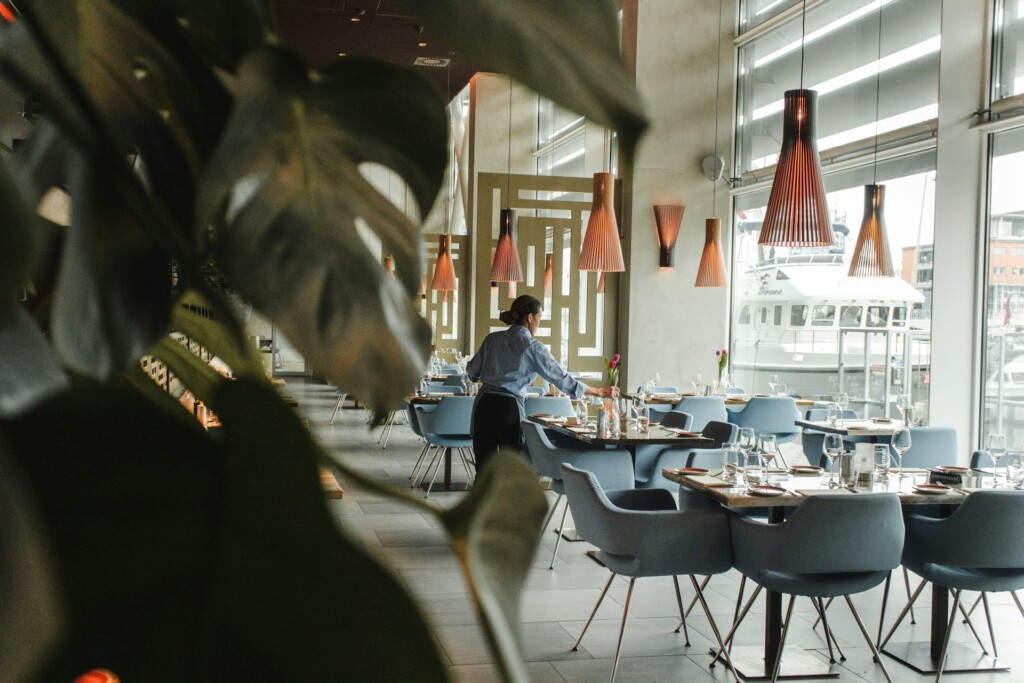
Restaurant construction management success starts with establishing clear project parameters during initial planning. We define scope boundaries, operational requirements, and budget constraints before design work begins. This upfront clarity prevents scope creep and ensures all stakeholders understand project objectives from day one.
Design coordination requires balancing brand identity with operational efficiency. We align architectural plans with kitchen workflows, dining capacity, and service models. Permitting strategy development happens early, accounting for Dallas-specific requirements including health department approvals, building code compliance, and site development reviews. Schedule forecasting identifies potential bottlenecks and builds realistic timelines that accommodate permit processing, material delivery, and inspection coordination.
Risk management and cost controls operate throughout construction phases. We implement regular budget reviews, change order evaluations, and progress tracking systems. Equipment installation coordination ensures kitchen systems integrate properly with mechanical, electrical, and plumbing infrastructure. Interior finishes require quality checks at each phase to prevent rework and maintain brand standards before project turnover.
Multi-site programs benefit from standardized processes that create predictable rollout schedules. We develop consistent specifications, contractor qualifications, and approval workflows that reduce variability across locations. This approach streamlines permitting, accelerates construction phases, and maintains quality standards regardless of project size or complexity.
Ready to streamline your Dallas restaurant construction project with comprehensive management from planning through turnover? Contact EB3 Construction to discuss your project requirements and timeline.


